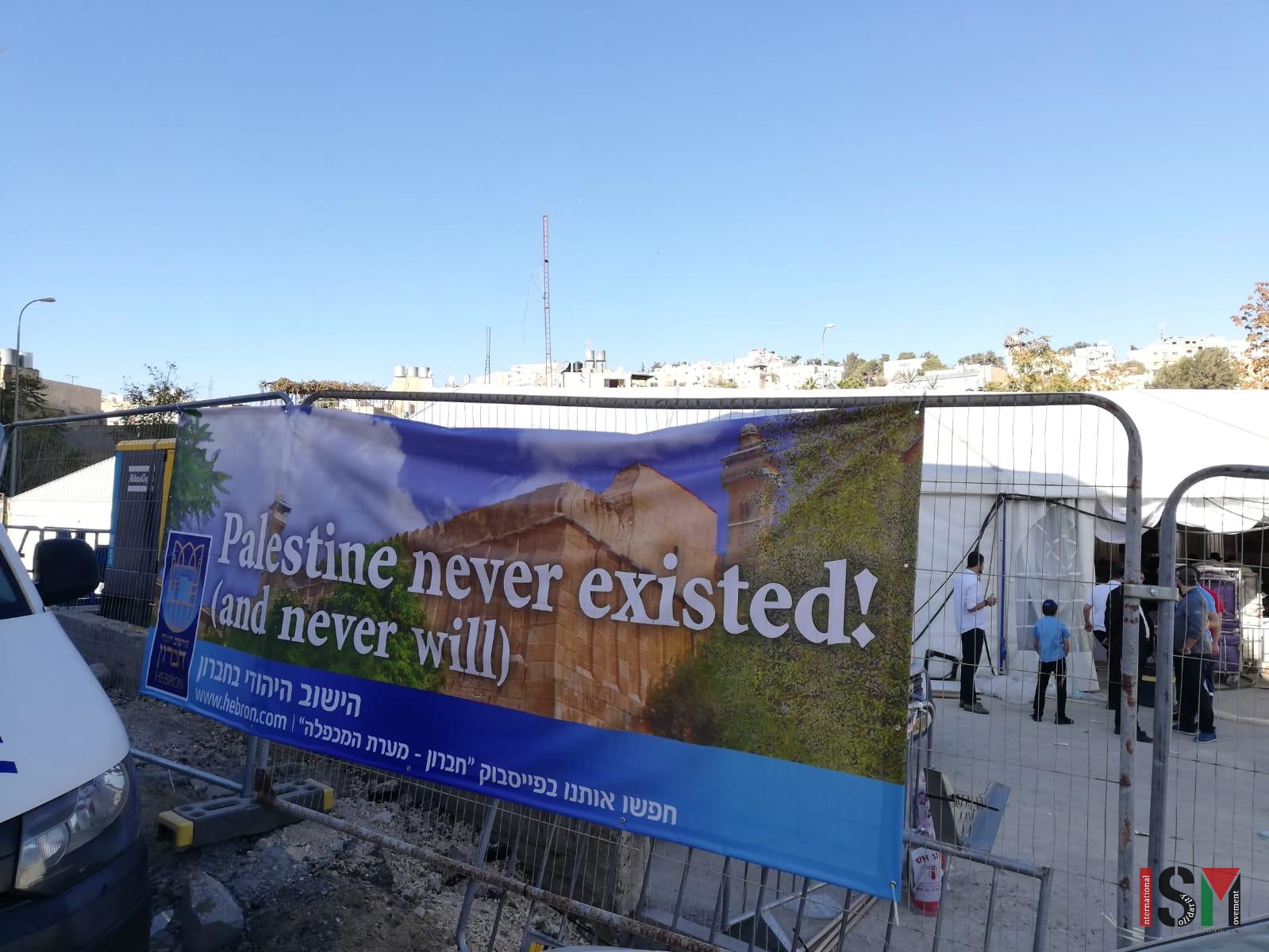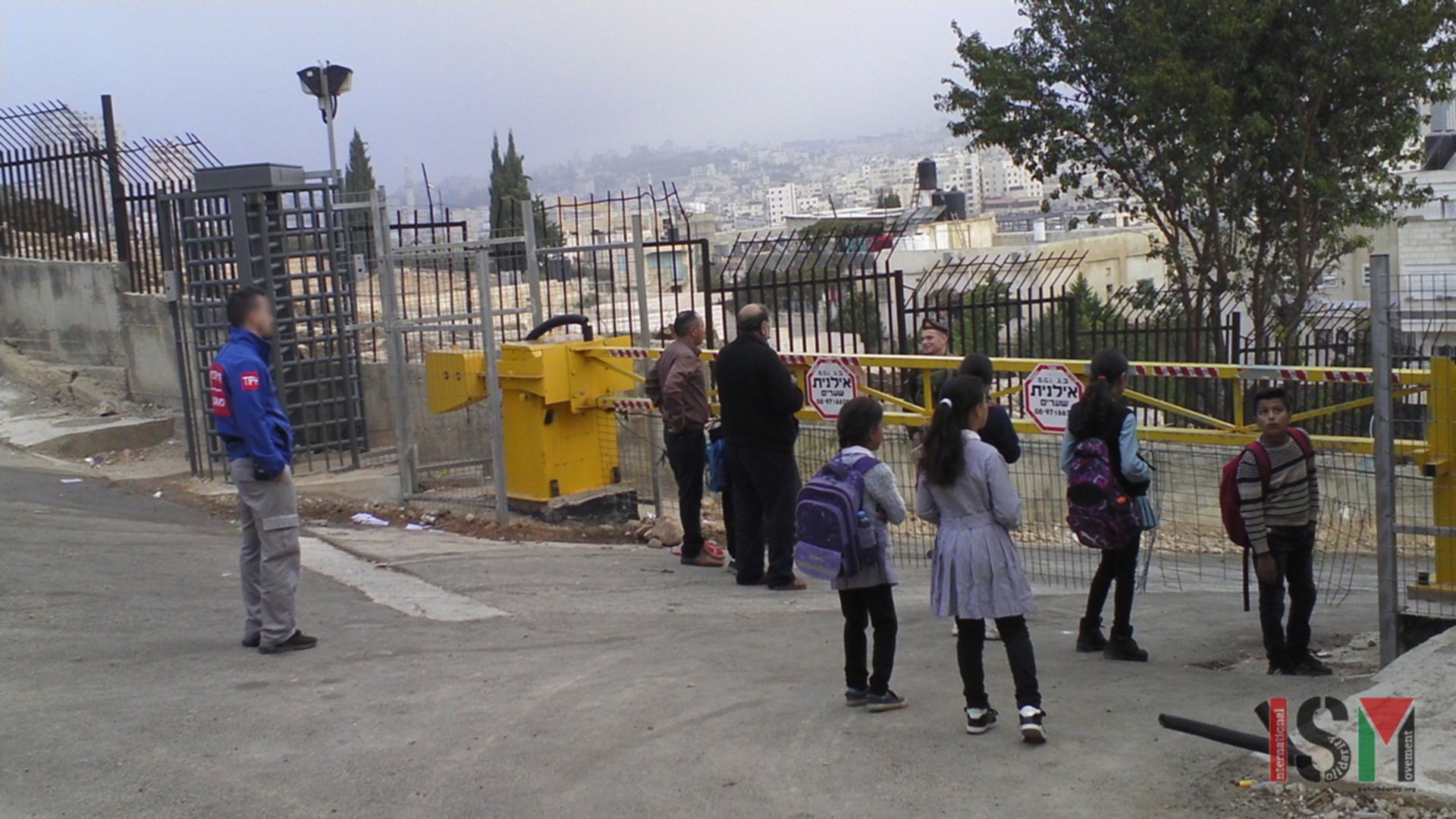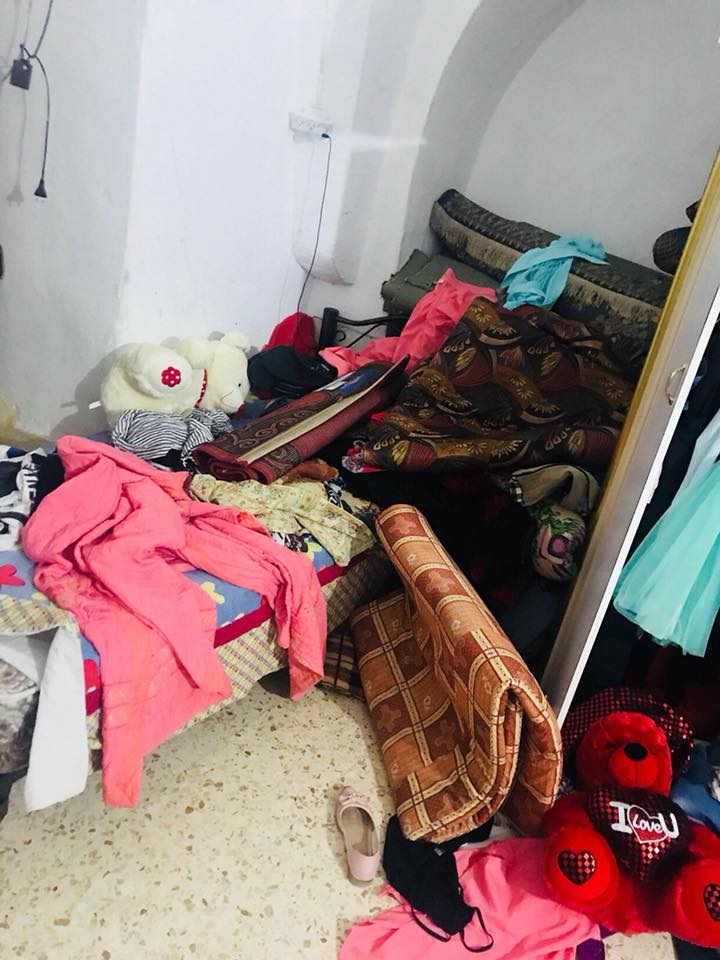Tag: Tel Rumeida
-
When holidays bring hate: Sarah’s Day in Occupied Hebron
For Palestinians living in Occupied Hebron, Sarah’s Day, a major Jewish holiday, means an increase in violent attacks by illegal Israeli settlers.
-
Residents and schoolchildren blocked at the Tel Rumeida checkpoint for 30 minutes
21st October 2018 | International Solidarity Movement, Al-Khalil Team | Hebron, occupied Palestine This morning, schoolchildren and other passers-by encountered the Eastern Tel Rumeida checkpoint blocked in both directions and had to wait 30 minute to pass it on their way to school or workplace, while a young man was detained inside for 30 minutes.…
-
ISM speaks to ‘Aref Jaber about the increase of raids by Israeli forces in his neighborhood
23rd June 2018 | International Solidarity Movement, Al-Khalil team | Hebron, occupied Palestine ‘Aref Jaber lives in the Jaber neighbourhood in the H2 area of occupied Hebron, under Israeli control. He is a local activist and works with Human Rights Defenders filming and publicising the violations of international law committed by Israeli forces in his…



